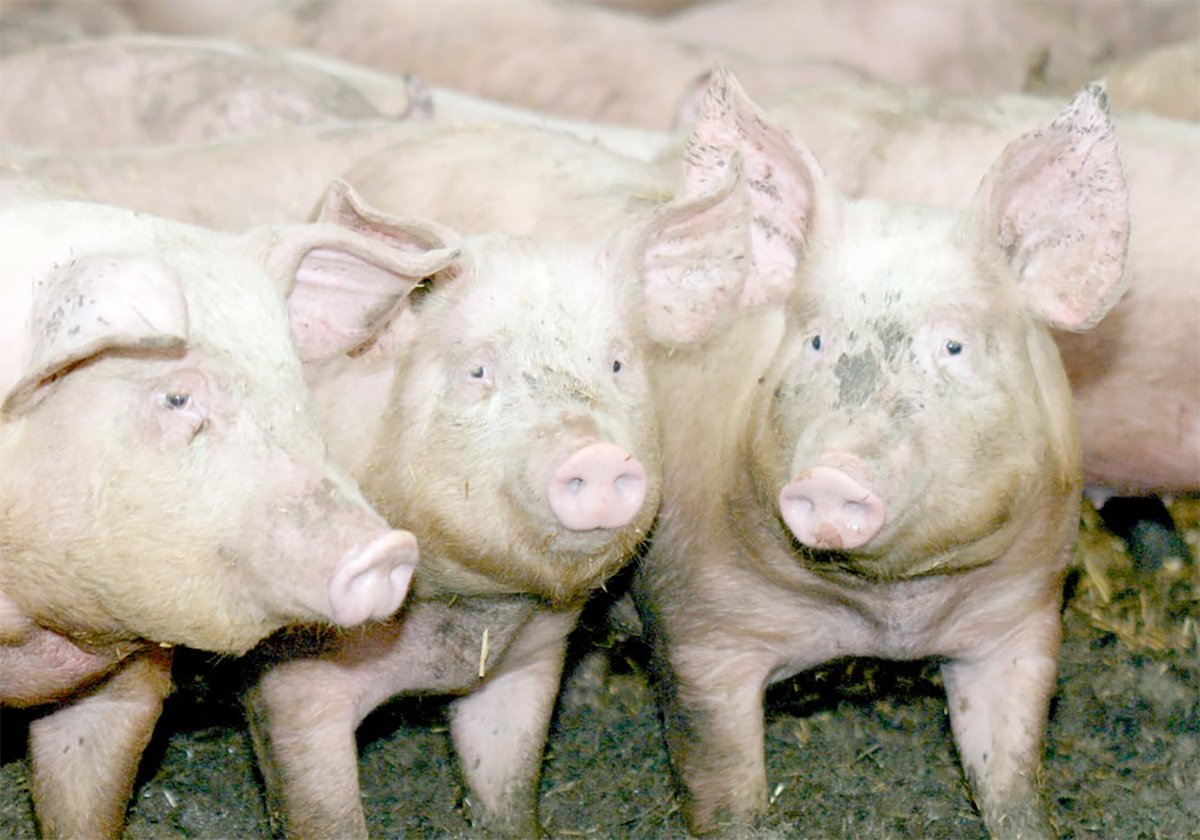Beef cattle fed high concentrations of distillers grains could face a higher risk of polio, say American livestock feed specialists.
Distillers grains are the majority of what’s left after producing ethanol and their feed value and low cost can help profitability in the cattle business. But feeding this high protein product is new to most cattle producers and it must be carefully evaluated for its role in the ration and its risks.
One risk comes in the form of sulfur, which distillers grains have in abundance, up to four percent of the product. Too much sulfur and cattle could develop Polioencephalomalacia, or brainers, resulting in sudden death or loss of muscle control and blindness.
Read Also

The Western Producer Livestock Report – November 13, 2025
Western Producer Livestock Report for November 13, 2025. See U.S. & Canadian hog prices, Canadian bison & lamb market data and sales insights.
Dona Funk of the University of Missouri extension division said cases are rare unless an animal is exposed to high levels of sulfur, lead or salts or if the animal has a severe thiamine deficiency.
University of Saskatchewan professor John McKinnon said the levels found in western Canadian ethanol byproducts aren’t generally high enough to cause concern.
“At 0.4 percent (sulfur) it would have to form 100 percent of the ration to be of concern,” he said.
McKinnon has done trials feeding distillers grains to feedlot calves at levels up to about 35 percent without developing sulfur-related problems.
When the distillers grains form less than one third of the ration, the level of sulfur is about one-tenth of one percent.
But still McKinnon advised that producers test their water and feed, including the distillers grains, to ensure the whole ration remains safe and in balance.
He said long before sulfur could cause polio, the ethanol byproduct’s other contents begin to create problems. Phosphorus and excessive levels of protein wind up in manure, which creates disposal issues and wastes feed.
“You need to look at the whole ration and its value to the animal. Wheat based ethanol byproducts aren’t as much of an issue for sulfur (compared to corn),” he said.
Cattle feeding trials performed by Texas A&M University’s Jim McDonald delivered healthy daily gain results, but also indicated that some ethanol production practices could cause polio in cattle.
He said occasionally the ethanol plants artificially raise sulfur levels in the byproducts.
Sulfuric acid is commonly used to control the acidity of the mash in processing. When combined with the use of a different sulfur containing acid to sterilize pipes and tanks, the result can be byproducts containing more than one percent sulfur.
“You need to test load to load to know for sure what you are getting is safe. Or know that the production practices at the plant don’t create the problem,” McDonald said.














